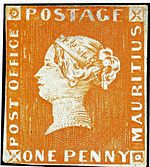The first was the British Library which was about a twenty minute walk from their Tottenham Court Road Hotel. Not having been to the British Library following its reconstruction a few years ago this proved to be a very interesting visit for me as well.
The architecture of the library is very pleasing to the eye yet is quite low profile close to St Pancras Station, which of course has been magnificently revamped following the transfer of the Eurostar trains terminus there some years back, from London Waterloo.
The British Library is mainly a centre for looking at and reading, interesting or old books. Though to enter the research rooms or the library proper one needs to join which is free though requires passport style ID. There is an interesting exhibition area which did not require ID or membership so we restricted our visit to that and then to the library's refectory. I believe The British Library still holds one copy of every book ever published so on my next visit I might seek out my late mother's first children's novel - "The Mystery of the Blue Tomatoes"

The Library also houses large stamp collections, which are cleverly stored in accessible panels in the public sections. Collecting stamps used to be a hobby for many people though these days although stamps are still purchased for investment purposes, the number of children collecting them has fallen heavily. Nonetheless I found viewing the stamps fascinating. The rarest seemed to be one from Mauritius and I note that in the 1990s one like that below, sold for $millions at an auction:

The books were very cleverly stacked and displayed throughout the Library and many including some in the exhibition rooms were extremely old and rare. In particular an old Ethiopian bible caught my eye. The whole volume had been meticulously compiled by hand including some brilliant art work though I had thought that it was older than C15:

The following day was for the V&A and the Science Museum. The impressively long pedestrian underpass from South Kensington Underground Station to the museums was appreciated as was the virtual pedestrianisation of Exhibition Road. I wondered when the pedestrian underpass had been built - after WWII?
The V&A is a wonderful museum with the main issue being where to start and what to see. As is usual for UK museums its cost free access is an huge plus.
The German stamps showing inflation in that country during the 1930s intrigued:
Then on via the pedestrian subway to the Science Museum. The ground floor of this museum is clearly maintained to appeal to students and young people. Entrance again is supposed to be free of cost though one has to pass through what look like ticket gates to enter. However given the expense of constructing some of the exhibits which included old film of mankind's first walk on the moon and before that Yuri Gagarin's first flight the museum's need for finance is keen.
One exhibition concerned the sun:

Again the time spent at the museum flew by.
The last couple of days visiting and showing people around the British Library, the V&A and The Science Museum made me appreciate how much London has to offer Londoners as well as tourists, provided one does not fall into the trap of taking its magnificent offerings, for granted.

No comments:
Post a Comment